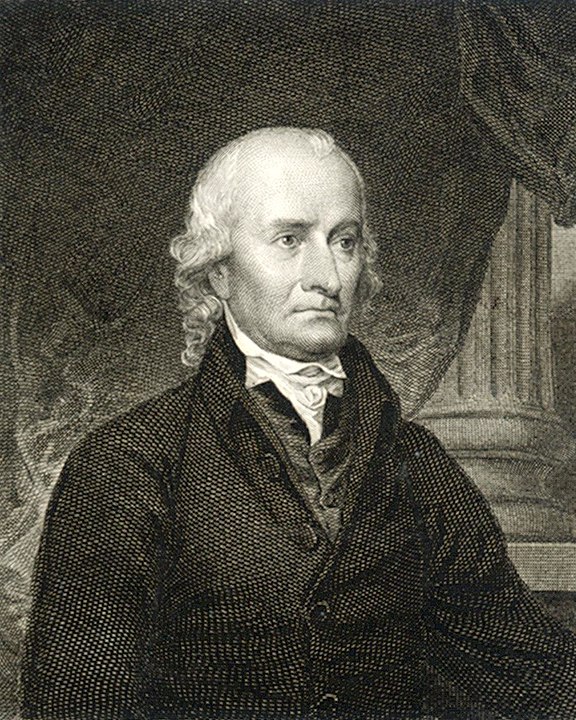
Hugh Williamson represented North Carolina at the Constitutional Convention. While he is most remembered as founding father and politician, Williamson was also physician, scientist, and life-long scholar.
Early Life
Hugh Williamson was born on December 5, 1735, in West Nottingham, Pennsylvania. He came from a large Scottish/Irish family who hoped he would become a Presbyterian minister. After attending preparatory schools, he earned his degree from the College of Philadelphia (later part of the University of Pennsylvania).
While he trained to become a minister, Williamson was never ordained. Instead, he chose to become a professor of mathematics at his alma mater. He later decided to pursue the study of medicine, ultimately obtaining a degree from the University of Utrecht. Williamson briefly practiced medicine, but was drawn more to scientific pursuits.
While en route to England in 1773, Williamson witnessed the Boston Tea Party. After being questioned about the event in Britain, he wrote an open letter to Lord Mansfield, England’s lord chief justice, in defense of the colonies, which was entitled, Plea of the Colonies. Following the Declaration of Independence, Williamson returned to the colonies. He later served as a military surgeon during the Revolutionary War.
Williamson entered politics with his election to the North Carolina House of Commons in 1782. He later served three terms in the Continental Congress (1782–85). In 1786, North Carolina appointed Williamson to attend the Annapolis Convention; however, he arrived too late to play a meaningful role in the proceedings.
Constitutional Convention
One year later, Williamson was appointed to represent North Carolina at the Constitutional Convention. An active and well-respected participant, Williamson served on five committees, offered twenty-three motions, and delivered over seventy speeches.
William Pierce described Williamson as a “Gentleman of education and talents.” Meanwhile, Thomas Jefferson said “he was a useful member, of an acute mind, attentive to business, and of a high degree of erudition.” After the Convention ended, Williamson published a series of public letters, known as the “Letters of Sylvius,” supporting a strong federal government. According to Williamson, the outcome of the ratification debate would determine whether the United States would remain a “system of patchwork and a series of expedients” or become “the most flourishing, independent, and happy nation on the face of the earth.” After North Carolina initially rejected the Constitution, Williamson helped rally support for ratification.Later Life
North Carolina elected Williamson as one of its first U.S. Representatives. He served two terms, holding office from 1789-1793. After retiring, Williamson moved to New York City, where he returned to academic and philanthropic pursuits. He also served as one of the first trustees of the University of North Carolina. Williamson died on May 22, 1819, at the age of 83, in New York City.








